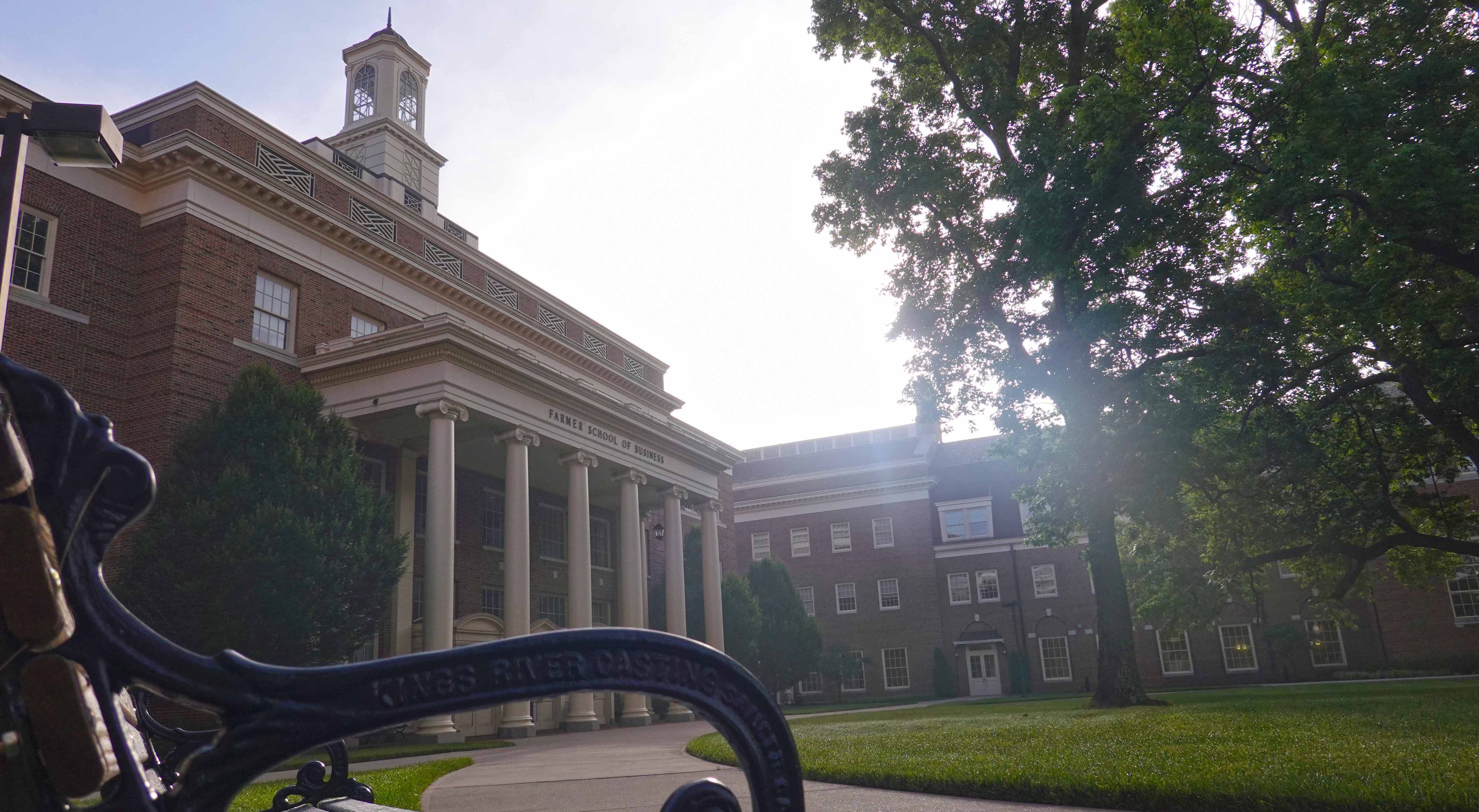Accountancy program adapting curriculum to prep students for future workforce


It’s no secret that change has arrived in the accountancy profession with even further change on the horizon. In particular, the development of new technologies, particularly those aimed at more efficiently and effectively leveraging data and analytics, will change the nature of accountants’ jobs and require new skill sets. While such change is often uncomfortable, the development and reliance on new technologies will also bring opportunities, and the Department of Accountancy is working to show students where those opportunities lie and prepare the students for those opportunities.
“We want students to be more prepared for the new data-driven world. We’re exposing students to a more analytics mindset and letting them be able to work on data-driven decision-making projects,” Farmer School professor Dr. James Zhang explained. “They have to rethink their daily work tasks. Are they still crunching the numbers by hand or are they thinking of something more critical, higher level? Present their manager with multiple plans or multiple solutions based on the single data set, be more creative in terms of presenting better solutions given the data.”
Zhang's ACC 361 class, Modeling Business Processes in Accounting Information Systems, blends accountancy principles with methods and ideas from information systems and analytics.
“The integration of data analytics into the accountancy curriculum not only enhances our learning but makes it a more dynamic and interactive experience. It gives us the chance to apply our knowledge in a more hands-on way and it allows us to grow upon prior class knowledge, past internship/professional experience, and recent technological advances in one condensed setting, that makes us more prepared for the future,” senior Mary Claire Reagan noted.
Zhang used the example of a guest speaker from PwC who spoke to his classes last fall. “They came in to present the concept of robotic process automation, and they showed students using a hands-on exercise of how to automate the data entry from an Excel spreadsheet to PDF documents, using simple robotic designing features without any programming language background. And the students learned that in 80 minutes of class time, then were able to finish a project later on in the class using that automation,” Zhang recalled. “The students all pointed to that as a game changer of their career because they can see how a robot can help them in terms of the daily routine repetitive tasks. They realized inputting information from Excel to PDF can be applied to so many different areas such as insurance claims, getting information from software, or getting information from the internet. From that small project, they were enlightened about what they can do in the workplace.”
“I think this may have been one of the most helpful courses I have ever taken at Miami, and a large part of that was Dr. Zhang's approach to the course. He intertwined very interesting technology such as Tableau, Robotic Process Automation (RPA), and SAP with the course material,” senior Dean Barkoulies remarked. “This course has helped me become exposed to many emerging tools that I know I will be using in the professional world.”
“One of my favorite parts about this class has been all the different projects we've had using applications like such as Tableau and SAP, things that companies are using right now and are becoming more popular,” senior Sarah Smith said. “It's also been interesting seeing some of the aspects of the class that I used in my internship last summer.”
“The amount of real-time information that is effectively going into companies and the fact that we have the capacity to process so much data means it is going to be very useful to understand the tools, to find certain groupings, or make certain associations between different groups of data,” senior Eric Grosskopf pointed out. “Knowing the tools needed to find the necessary information to make a proper decision is paramount.”
“You need to be able to identify the relevant questions, and then you need to be able to determine what data is needed to inform those questions? How do we obtain that data? Then, how do we transform that data into something that's more easily analyzed? How do we actually analyze the data and then how do we draw inferences? And then, how do we use data visualization techniques to persuasively communicate our insights?” Department of Accountancy chair Andrew Reffett noted. “We have that framework established and what we want throughout our curriculum is cases and projects or modules that collectively cover all those facets.”
Zhang’s classwork is part of a larger shift in curriculum within the accountancy program to create future employees who are skilled in data-driven judgment and decision making. “Accountants who ascend to leadership roles in today’s data-driven business environment are those who are able to work well in teams, and can quickly learn and apply new technologies to solve problems and persuasively communicate solutions to a broad range of stakeholders,” the department said in a curriculum appendix. “We are confident that our curriculum innovation efforts will produce a truly transformative educational experience that will differentiate our accountancy programs from most, if not all, other top programs.”

